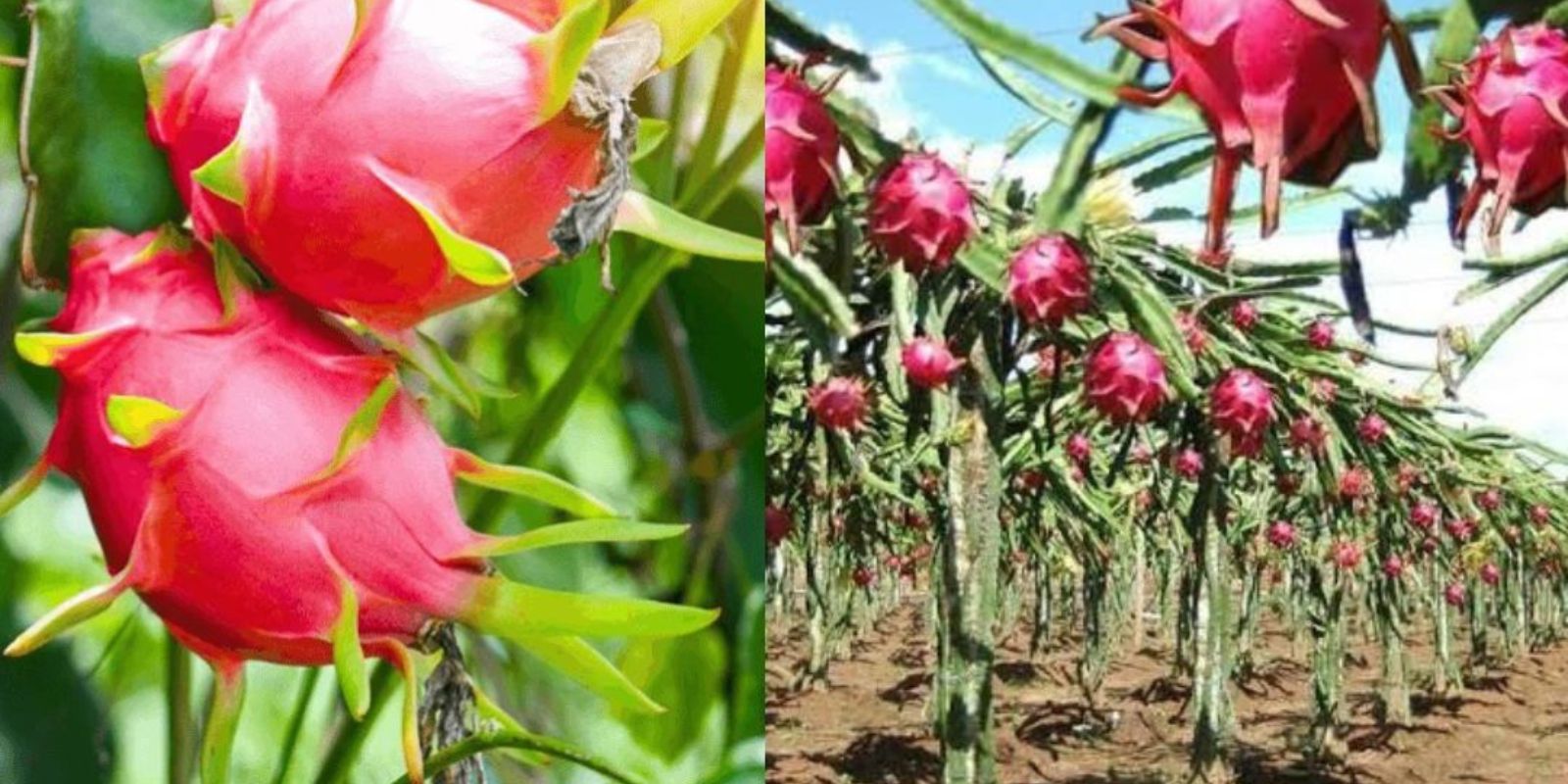Introduction
Pitahaya (Hylocereus spp.), also known as dragon fruit, is a tropical fruit with high economic and nutritional value. Its vibrant color, delicious taste, and health benefits have made it increasingly popular worldwide, especially in Latin America and Asia. However, pitahaya cultivation is vulnerable to various pests that can severely damage the plant, reduce yield, and lower fruit quality.
Conventional pest control methods rely heavily on chemical pesticides, which can harm the environment, beneficial insects, and even human health. In contrast, ecological pest control focuses on sustainable techniques that protect crops while maintaining environmental balance. This article explores natural and eco-friendly methods to combat common pests in pitahaya cultivation, ensuring a healthy and productive harvest.
Common Pests in Pitahaya Cultivation and Eco-Friendly Control Methods
Several pests can infest pitahaya plants, each requiring specific management techniques. Below are some of the most common pests and sustainable methods to control them.
1. Mealybugs (Cochenille) – A Threat to Pitahaya Growth
Mealybugs are small, soft-bodied insects that feed on plant sap, weakening the plant and leading to stunted growth, leaf yellowing, and fruit deformation. They also secrete honeydew, which encourages sooty mold growth, further reducing the plant’s ability to photosynthesize.
Eco-Friendly Control Methods:
- Biological Insecticides – Bacillus thuringiensis and Beauveria bassiana are effective against mealybugs without harming beneficial insects.
- Sticky Traps – Placing sticky traps near the plant helps capture adult mealybugs and prevent their spread.
- Natural Predators – Encouraging ladybugs and lacewings, which feed on mealybugs, can naturally control their population.
- Neem Oil Spray – A homemade neem oil spray can be applied to affected areas to disrupt the pest’s life cycle.
2. Weevils (Picudos) – Hidden Pitahaya Destroyers
Weevils are small beetles that feed on pitahaya stems, causing damage that weakens the plant structure and reduces fruit production. Their larvae burrow into the plant tissues, making them particularly destructive.
Eco-Friendly Control Methods:
- Biological Insecticides – Bacillus thuringiensis and Beauveria bassiana effectively target weevil larvae and adults.
- Light Traps – Using UV light traps at night can attract and capture adult weevils.
- Handpicking – Regularly inspecting and removing adult weevils from plants can prevent large infestations.
- Beneficial Nematodes – Introducing Steinernema nematodes to the soil helps eliminate weevil larvae.
3. Nematodes – Silent Root Killers
Nematodes are microscopic worms that attack pitahaya roots, causing wilting, poor growth, and reduced fruit yield. Some nematode species form galls on roots, severely affecting the plant’s ability to absorb water and nutrients.
Eco-Friendly Control Methods:
- Biological Control – Paecilomyces lilacinus, a beneficial fungus, parasitizes nematodes and reduces their population.
- Crop Rotation – Alternating pitahaya with non-host plants like marigolds or mustard can disrupt nematode life cycles.
- Organic Soil Amendments – Adding compost, neem cake, or bio-fertilizers improves soil health and suppresses nematode activity.
- Solarization – Covering the soil with plastic sheets in hot weather can kill nematodes through heat treatment.
4. Larvae – Hidden Threats to Healthy Growth
Caterpillar larvae from various moth species can chew on pitahaya leaves and stems, reducing plant vigor and affecting fruit quality. If left unchecked, they can cause significant defoliation.
Eco-Friendly Control Methods:
- Biological Insecticides – Bacillus thuringiensis and Beauveria bassiana specifically target caterpillar larvae.
- Sticky Traps – Placing sticky traps can help catch larvae before they reach critical growth stages.
- Hand Removal – Regularly inspecting plants and manually removing larvae can prevent infestations from escalating.
- Companion Planting – Planting basil, marigold, or mint near pitahaya can deter caterpillars naturally.
5. Snails and Slugs – Slow but Destructive
Snails and slugs are common pests in pitahaya cultivation, especially in humid climates. They feed on young shoots, leaves, and fruit, leaving irregular holes that make the plant vulnerable to diseases.
Eco-Friendly Control Methods:
- Natural Repellents – Sprinkling crushed eggshells, coffee grounds, or diatomaceous earth around plants can deter snails.
- Lemongrass and Citronella – These natural repellents create an unfavorable environment for snails and slugs.
- Physical Barriers – Copper tape around plant bases can repel snails due to its mild electric charge.
- Beer Traps – Burying shallow containers filled with beer attracts and drowns snails effectively.
General Eco-Friendly Pest Control Strategies
In addition to targeting specific pests, general ecological pest management practices can help maintain a healthy pitahaya crop:
1. Encourage Beneficial Insects
Introducing natural predators like ladybugs, lacewings, and parasitic wasps can help control harmful insect populations.
2. Maintain Proper Plant Spacing
Good air circulation reduces humidity levels, making it harder for pests and fungal diseases to thrive.
3. Use Organic Mulch
Mulching with straw or dried leaves can suppress weeds and provide habitat for pest-controlling organisms.
4. Apply Neem Oil or Garlic Spray
These natural sprays repel multiple pests while being safe for the environment and beneficial insects.
5. Keep the Garden Clean
Removing plant debris, fallen fruit, and weeds prevents pests from finding shelter and breeding grounds.
Conclusion
Growing pitahaya successfully requires vigilance against pests, but using eco-friendly methods ensures a healthy crop while preserving biodiversity. By integrating biological insecticides, natural predators, organic soil treatments, and physical barriers, farmers and gardeners can protect their pitahaya plants without harming the environment.
Are you growing pitahaya? Share your best pest control tips in the comments! 🌿✨

